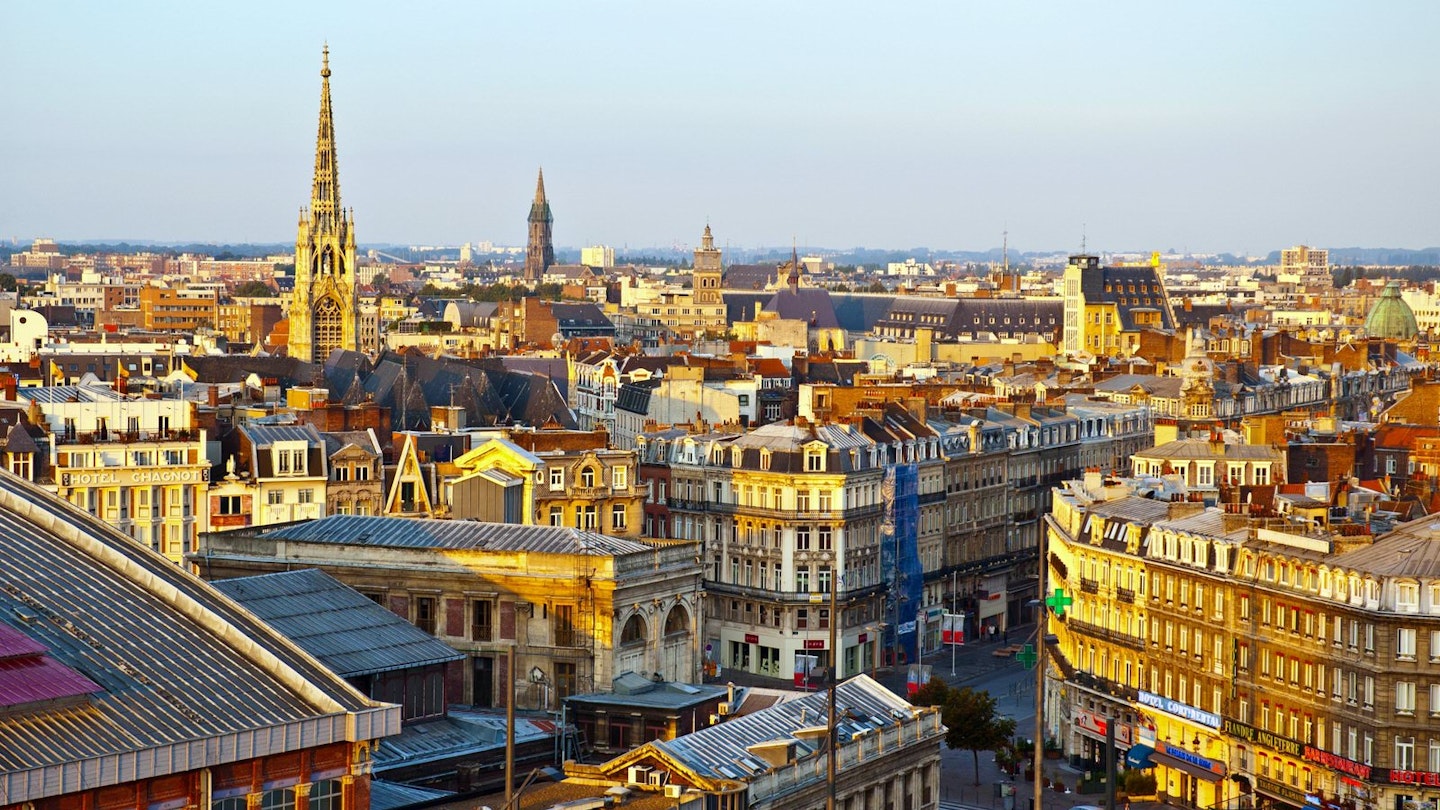A Three-Day Itinerary in Lille, France
Just an hour north of Paris by high-speed train, and with fast, direct rail links to London and Brussels, Lille offers an accessible, eco-friendly city break. This charming city, France’s fourth-largest, is filled with ornate French and Flemish architecture, unique cuisine featuring local beer, exquisite art museums, and cutting-edge cultural centers. As Lille is France’s first World Design Capital in 2020, there’s no shortage of things to see and do during your visit.
Here’s how to maximize your time in Lille over three days.
Day One: Architecture and Fine Art
Start your adventure at Lille’s Flamboyant Gothic-style Palais Rihour, a magnificent mid-1400s building housing the tourist office. Here, you can pick up a City Pass, which covers entry to key museums and attractions in the greater Métropole Européenne de Lille (MEL) area, as well as public transport.
From Place Rihour, stroll to the grand square, Place du Général de Gaulle. This area is surrounded by elaborate buildings, including the Flemish Renaissance former stock exchange, Vieille Bourse. Explore its interior, where stalls sell used books, vinyl records, and vintage posters. Exiting on the eastern side leads you to Place du Théâtre, featuring the early 20th-century neo-Flemish Chambre de Commerce, topped by Lille’s iconic 76m-high gilded clock tower.
After lunch at one of the charming bakery-cafes in the old town, such as Boulangerie Brier, climb the UNESCO-listed belfry of Lille’s Hôtel de Ville for breathtaking views of the city. Spend your afternoon at the Palais des Beaux Arts, one of France’s finest art museums. Discover archaeological finds, medieval art, and masterpieces from illustrious artists such as Rodin, Renoir, Picasso, Delacroix, Manet, and Monet.
For dinner, head to Rue de Gand, Lille’s prime dining destination. Experience local specialties at Le Bistrot Lillois, serving traditional dishes like carbonade flamande. Enjoy evening drinks at the bustling bars in the area, or attend a performance at the opera house.
Day Two: Local Designers and Chocolate Shops
Visit Roubaix, easily accessible by train, to see the remarkable La Piscine Musée d’Art et d’Industrie. This beautifully renovated art deco swimming pool now serves as a fine arts museum, featuring sculptures reflected in the aquatic surroundings. Don’t miss the excellent modern French restaurant on-site.
Nearby, Maisons de Mode showcases locally crafted fashion and accessories from up-and-coming designers. Explore the surrounding streets to discover their workshops, including a second location just a few kilometers southwest of the center.
Return to Lille’s old town for more shopping. Momentum offers a range of locally designed homewares. Indulge your sweet tooth at Meert, a chocolate shop famous for its 19th-century charm and delectable gaufres (waffles). Other excellent chocolate shops, including Quentin Bailly, offer their own handmade delights.
Dine at the hidden gem, L’Assiette du Marché, where you can enjoy modern French cuisine in a romantic setting. After dinner, explore the lively bars along Rue Doudin and Rue Royale, or catch a live music event at Le Splendid, an intimate venue located in a former cinema.
Day Three: Cultural Events and Local Beer
Begin your final day at Musée d’Art Moderne, d’Art Contemporain et d’Art Brut – LaM, located 9km east in Villeneuve-d’Ascq. Explore a stunning collection featuring works by prominent artists such as Braque, Miró, Modigliani, and Picasso.
Check out Lille3000 for info on exhibitions, concerts, and festivals at two of the city’s prime cultural spots. Gare Saint Sauveur is a former freight train station that has been transformed into a vibrant cultural venue, complete with a delightful restaurant serving classic French dishes. Alongside, Le Tripostal occupies a huge red-brick building that was once a postal sorting center.
For a last Flemish meal, visit Au Vieux de la Vieille, where you can try the local favourite, Welsh au Maroilles. Before you depart, be sure to pick up some Lille-brewed beers at L’Abbaye des Saveurs or at microbrewery Célestin’s.
When to Go
Lille is an excellent destination for a long weekend getaway, particularly as prices tend to drop significantly on Friday and Saturday nights. If you’re able, extend your trip into the later part of the week for more open venues. However, be aware that most of the city’s museums tend to close on Tuesdays.
Where to Stay in Lille
For trendy hostel accommodations, consider Gastama, located in the old town with a lively in-house bar. The eco-friendly Eklo Lille, an innovative hybrid hostel-hotel, features a restaurant housed in a nearby shipping container.
For midrange options, Hotel Kanai in the pedestrian center offers a delightful breakfast featuring regional cheeses and local jams. Antique lovers will appreciate Brueghel, with its charming wood-panelled lobby.
Design aficionados will love guesthouse Koh’ Coon, which features distinctive rooms with Jacuzzis, and Hôtel L’Arbre Voyageur, housed in a stunning former Polish consulate, complete with an on-site luxury deli and organic dining options.
Getting There
Train
The Eurostar connects Lille’s Gare Lille-Europe to London St Pancras in just 90 minutes. Fast trains also link Gare Lille-Europe with Brussels-Midi in approximately 35 minutes, as well as with Paris Gare du Nord in about 60 minutes, running on an hourly basis.
Bus
Eurolines and Flixbus operate routes to various European destinations, while Isilines and Ouibus serve locales throughout France.
Air
From Lille, you can reach Paris’ Charles de Gaulle Airport in about an hour by direct train. Alternatively, Lille has its own small airport, Aéroport de Lille, which services a limited number of French and European destinations.




